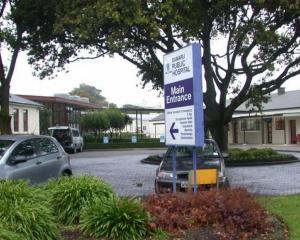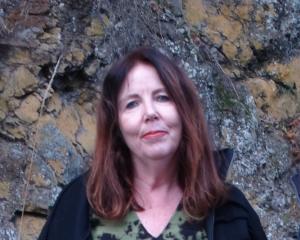The clinically led review of services at Oamaru Hospital has changed the conversation between the Southern District Health Board and Waitaki District Health Services, the company's chairman says.
As the SDHB and WDHS prepare to enter contract negotiations for the 2017-18 financial year - to which a 10% funding cut was suggested as a starting point - WDHS chairman George Berry said yesterday the fear a review before negotiations would lead to a loss of services at the hospital had not materialised.
The review had instead shifted the focus away from funding.
"I think there is a lot of goodwill on both sides now. We're beyond the talk of 10% cuts to the focus on what's needed here and what has to be funded,'' Mr Berry said.
"We'll just have to see how it all plays out, but at this stage we're pleased with progress.''
When negotiations with SDHB service providers began over a year ago - with a proposed 5% funding cut as a starting point - WDHS was the only rural health company in the region that resisted signing a new agreement.
In March, hospital management warned bed cuts at Oamaru Hospital, from 30 to 24, were a "starting point'' in the face of ongoing underfunding and the projected cuts.
"[A chiselling-away of services] was our fear, but in fact the agreement to have a clinically led review of health requirements has been the key to looking at better ways to do things in the future. It hasn't been an accounting or a cost-cutting exercise, it's been an exercise under clinical leadership ... to see how we can serve the patient better.''
This week the review team met the public, health groups and stakeholders in Oamaru.
Both Mr Berry and Dr Carol Atmore, the general practitioner and clinical adviser contracted by the SDHB to lead the review, said the preliminary recommendations discussed were well-received at Tuesday's meeting.
One key recommendation discussed at the meeting was establishing a "clinical care hub'' similar to the Community Rehabilitation Enablement and Support Team services in Canterbury and the Complex Clinical Care Network services on the West Coast.
"It's about pulling together your Allied Health and your community nursing and your clinical nurse specialists as a core group that work around a patient's needs,'' Dr Atmore said.
"They work with the needs assessment service co-ordination part of the health system, with the providers of home-based support.''
The approach could ease pressures on bed numbers as out-patient care could be co-ordinated with the patient while they stayed in hospital.
The review team will meet for the final time next week and the final recommendations from the working group will go to the WDHS board and SDHB commissioners this month for consideration.











